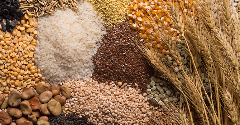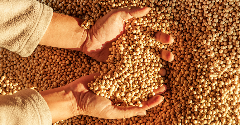News
Cycloponics to expand organic farming facilities in French car parks
9 Apr 2020A French subterranean agriculture startup launched its first funding round last November and raised almost double the investment that was requested. When Cycloponics launched on Lita.co, a platform for investment in sustainable companies, the company hoped to raise €500,000. As of April 8, it had raised €950,800, 110% of which was from individual contributors.
This underground urban farm operates in Paris and cultivates mushrooms, strawberries, lettuce and microgreens in abandoned parking garages using hydroponic agricultural techniques. The startup launched in the French capital in 2016 with the goal of producing 30 metric tons of fruit and vegetables and 24 metric tons of mushrooms in 3,500 square meters of abandoned underground parking.

The euros received from this investment will go toward the company’s expansion as it looks to rehabilitate other abandoned urban sites for crop cultivation. Euractiv reports that Cycloponics recently won bids to expand its project into two other car parks in the 19th arrondissement of Paris.
Funds will also support an increase in vendor capabilities for the produce the company cultivates. Cycloponics delivers fresh organic produce daily with its fleet of cargo bikes. It also sells directly to restaurants and at markets.
Despite raising nearly a million euros to increase its access to abandoned real estate, Euractiv reports the company already has excess space in the abandon parking garage it has repurposed. To fill up the unused footprint, Cycloponics shares the premises with other sustainable agricultural startups, including a Norwegian fishmonger that produces Arctic sea urchins in aquariums and other hydroponic agricultural projects.
The farming startup currently operates in a space called La Caverne (The Cave) and grows its produce on the second underground level of the parking structure. Cultivation at that depth allows for plants to benefit from an autumnal-like environment year-round and limits the pests that can damage crops. It also requires techniques such as vertical farming; climactic engineering through the use of LED lights and thermal regulation; nutrient-rich hydroponic tanks that replace traditional dirt and permit denser cultivation; and the use of substrates and compost to encourage fungi growth.
According to the company website, the goal is to create nutritional hubs in urban neighborhoods to bring people closer to their food. Although Cycloponics currently only cultivates less than 4,000 square meters of space, French publication Le Monde estimates that there are 80 hectares of rooftop space and nearly 770 hectares of limestone quarry are available to be transformed into food production sites.
Related news

EU calls to harmonise allergen labelling increase
1 Jan 2025
Allergy awareness efforts focus on implementing a European reference laboratory and collaboration to standardise labels and support allergen identification.
Read more
Is it time for a global definition of whole grain?
30 Dec 2024
Amid a lack of harmonisation, the European Food Information Council (EUFIC) is calling for a global definition of the term whole grain to end consumer confusion.
Read more
FDA delivers workshop on nutrition regulation and science
19 Dec 2024
The FDA hosted a nutrition regulatory science workshop exploring ultra-processed foods and emerging technologies, aiming to spotlight the relationship between nutrition, science, and evidence-based policies.
Read more
How US soy exports shape Southeast Asian food
19 Dec 2024
As Southeast Asia and the US mark 20 years of trade, trends in soy, especially plant-based preferences, signal increasing demand for high-quality protein sources.
Read more
Nestlé releases products for pregnancy and fertility
13 Dec 2024
Building on in-house research, existing scientific evidence, and consumer demands, the global food company has developed products designed for mothers and babies.
Read more
Food Compass nutrient profiling system is updated to fit latest nutrition research
9 Dec 2024
A nutrient profiling system widely used in the food and beverage industry has been redesigned to reflect new data on specific ingredients and the latest diet-health evidence.
Read more
South Korea launches campaign to correct mistranslated food
6 Dec 2024
The Seoul city government has created a new campaign to promote standardised foreign-language names for Korean food to overcome translation errors.
Read more
Brazil looks to expand agricultural export opportunities
4 Dec 2024
Agricultural trade agreements could contribute to sustainable food production in Brazil, according to politicians and key stakeholders from the Brazilian agricultural industry.
Read more
Concerns grow over EU-Mercosur deal
28 Nov 2024
The European Consumer Organisation, BEUC, has warned that the EU-Mercosur trade deal is likely to fail both consumers and farmers on sustainability goals.
Read more
Nordic countries need tougher food waste reporting, new research finds
26 Nov 2024
The Nordic Council of Ministers has released a report recommending how the region can tackle its food waste problem to achieve reduction targets.
Read more